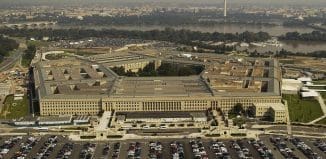U.S. DoD Concerned Over Climate Change
This post is also available in:  עברית (Hebrew)
עברית (Hebrew)
 Department of Defense (DoD) officials consider climate change a key factor in protecting national security around the globe, according to deputy assistant secretary of defense for strategy, Daniel Y. Chiu, who testified before the Senate Appropriations Committee’s defense subcommittee.
Department of Defense (DoD) officials consider climate change a key factor in protecting national security around the globe, according to deputy assistant secretary of defense for strategy, Daniel Y. Chiu, who testified before the Senate Appropriations Committee’s defense subcommittee.
The DoD is planning for contingencies and unexpected developments to protect the nation’s security, said Chiu. Climate change can create sea-level rise, storm surge, shifting climate zones, and more severe weather conditions that can affect operations.
“We are also seeing the potential for decreased capacity of DoD properties to support training, as well as implications for supply chains, equipment, vehicles, and weapon systems that the department buys,” Chiu said.
Even while infrastructures are being adapted to climate change threats, DoD also is conducting a baseline study to determine which infrastructure elements are most vulnerable to extreme weather events and sea-level increases, he said, adding that the study is due for completion late in 2014.
iHLS – Israel Homeland Security
Climate change effects potentially could alter, limit, or constrain environments where troops operate, Chiu said, who also mentioned sea-level increases as an example of an impact on amphibious operations.
Another demonstration of climate change’s effects is diminishing sea ice in the Arctic region, which can make the Arctic Ocean “increasingly accessible.” While such a scenario is a “decades-long dynamic,” the region has now begun to be monitored.
“[DoD] is working to better understand how the impacts of climate change will affect our planning and operations in the [United States] and abroad,” Chiu told the panel. “We’re working to take into consideration the impacts of climate change in our longer-term planning scenarios, so we can think about how it will affect our humanitarian assistance and disaster relief activities over time [and] look at our efforts to plan and enhance the capacity of partner militaries so they can plan for and respond to natural disasters.”
Source: Government Security News






























